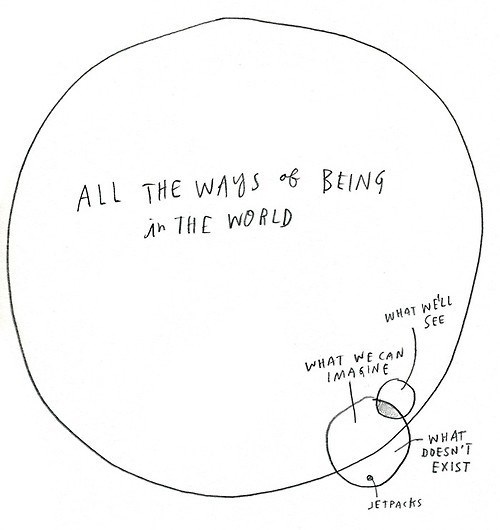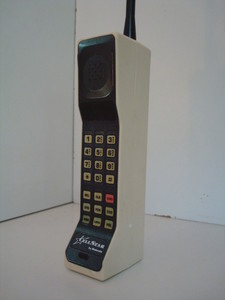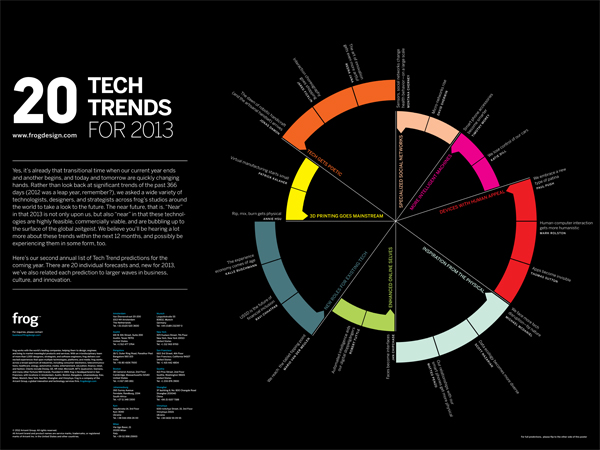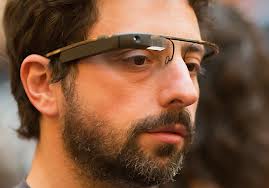So where are the jetpacks?
A couple of days ago I shared on Twitter the link for the 2014 HR Technology Conference call for speaking proposals page. Soon thereafter a couple of folks more or less called me out, questioning the fairly long lead time between when the speaking proposals are due and the actual dates of the conference (about 9 months all told). The objections or complaints were basically along the lines of that since the HR Tech industry is moving and innovating so quickly that having such a long interval between when speaking proposals are due in and when the conference will take place means that many new developments and innovations will go missing from the show.
While I admit that nine months seems like a long lead time, and without going in to the mundane details of the steps involved for proposal review, potential speaker interviews and re-interviews, program balancing, agenda and content development, and oh yeah, actually finalizing and promoting the agenda so that we can market and sell conference tickets, and all the time that these activities require, I'd rather take another approach to explain to the folks that think that 9 months is too long, and really anyone who has bought into the notion that the enterprise and HR technology industries are moving that quickly why they are a little off-base.
The truth is while the HR tech industry is innovating and progressing, it is generally not making quantum leaps in capability and efficacy in such narrow and discrete time frames as short as a few months. We could leave the call for proposals for HR Tech open until the day before the show and I would expect that 90% of the submissions would be largely the same types of sessions we see in January.
The larger, more established providers are working off of development roadmaps that are largely laid out at least a year out into the future, and perhaps even longer. The smaller, more innovative companies also need at least a year to get their product built, figure out just what the hell they are doing, convince a few real customers to use their product, and then get someone outside the Valley to notice them. Big client-side projects that form the basis for many of the case studies and HR executive-led sessions that we like to showcase at the show themselves often last the better part of a year, (and sometimes longer).
And even with all these incredible advances we have seen in HR tech in the last few years, (the move to the Cloud, video recruiting, social referral programs, mobile learning technology, iPad-based talent management, open web candidate sourcing, predictive workforce analytics tools, ACA compliance business intelligence, and on and on), many, many organizations and HR departments are still pushing paper, keying and re-keying the same data into multiple systems, and executing processes and transactions in much the same way as they were 10 years ago. The truth is it is still the exceptional HR organization and HR leader that wants or demands (and can secure) the very latest, most cutting-edge technology solutions for their organizations.
We have come a really, really long way in HR technology, but there is still a long, long way to go.
And for that reason, and a few others, it is a really exciting time to be in HR and in the HR Technology space. And that is also why I am really confident at next year's HR Tech Conference (the discussion about speaking proposals for Tech is what launched this little mini-rant), attendees will see the very best and latest developments, and hear presentations from their HR peers about how HR tech is helping drive their businesses.
But make no mistake about it, this is a long game. A game that is changing for sure, but probably not as quickly as you think and perhaps not as rapidly as some folks would have you believe.
Take a close look at all the 'HR Tech 2014 Predictions' pieces you can find in the next few weeks. Then do a quick search and read a few of the same for 2013 and 2012. There will be lots of overlap.
And that is ok. And expected. These things often take longer than we expect.
We were promised jetpacks, right?
And one last thing, mainly for a couple of folks that might care, if indeed some incredibly interesting and disruptive development in HR tech happened from out of the blue sometime between when the HR Tech Conference agenda is finalized and the actual show in October, I would find a way to make sure it was included at the event.

 Steve
Steve


